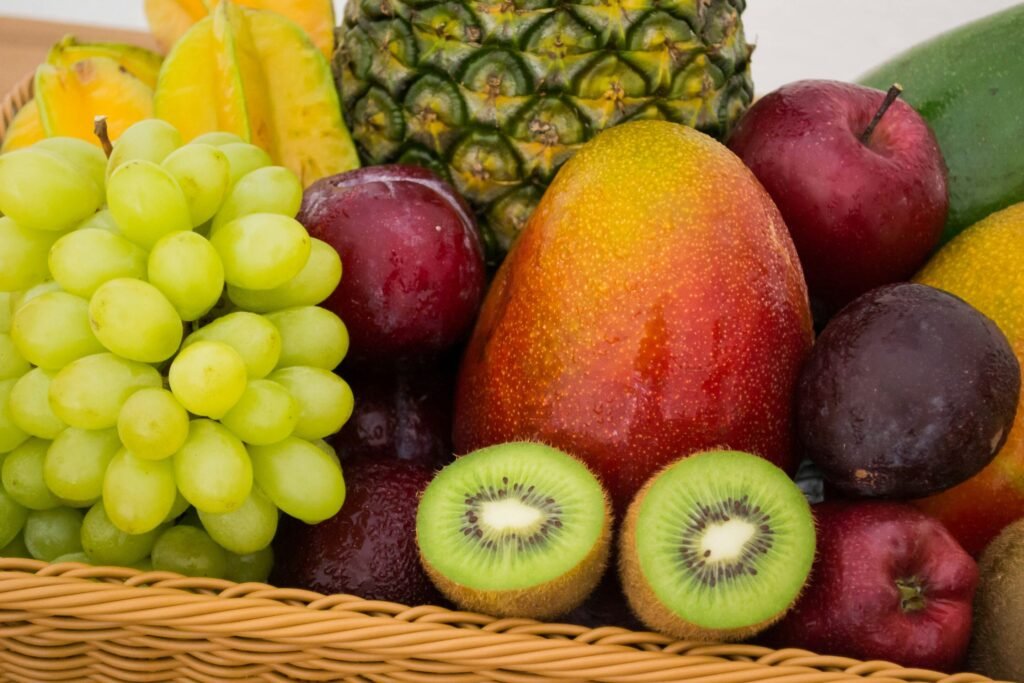The Netherlands could potentially see a 20% reduction in new cases of diabetes, coronary heart disease, and strokes by 2050 if all Dutch citizens were to consume two pieces of fruit daily and avoid processed meats like sausages and hamburgers. This conclusion stems from research carried out by Wageningen University & Research (WUR), with the findings published in eClinicalMedicine.
While the dietary guidelines recommend daily consumption of two pieces of fruit and 200 grams of vegetables, along with reduced intake of red and processed meats, not everyone adheres to these recommendations. However, the impact on public health could be significant if these guidelines were followed. Researcher Ming-Jie (Frederick) Duan and his team delved into the potential health benefits for the Dutch population.
Health benefits
Based on the study, the most substantial health benefits come from increasing fruit consumption and eliminating processed meats. The current average Dutch diet falls short of the recommended fruit intake and includes nearly 40 grams of processed meat per day, according to the National Institute for Public Health and the Environment (RIVM).
By cutting out processed meats, the research suggests that 22% of new type 2 diabetes cases and 21% of coronary heart disease cases could be prevented by 2050. Additionally, consuming two pieces of fruit daily could lead to a reduction of over 18% in strokes in the Netherlands.
“While these percentages may seem small, they translate to a significant number of individuals,” emphasizes Duan, noting that over one million people in the Netherlands currently live with type 2 diabetes.

Through a hypothetical forecast for public health in 2050, Duan and his team utilized data from previous studies and the RIVM food consumption survey to analyze the current dietary habits of the Dutch population. Their findings indicate insufficient consumption of vegetables, fruit, and legumes, along with high intake of sugary drinks, red meats, and processed meats.
“By understanding how certain food groups impact disease risks and combining this with current consumption patterns, we were able to estimate the potential reduction in disease cases if dietary guidelines were followed,” explains Sander Biesbroek, the last author of the publication.
Adjusting policy
The study suggests that promoting adherence to dietary guidelines in the Netherlands could have significant benefits for both individual health and the healthcare system, potentially reducing medical costs. However, changing eating habits on a large scale poses challenges, acknowledges Biesbroek.
To facilitate healthier choices, Biesbroek advocates for policy interventions that improve the food environment and encourage healthy eating habits. This could involve measures such as lowering taxes on healthy products and increasing taxes on unhealthy items like processed meats.
Furthermore, the research explored the effects of other food groups outlined in the Dutch dietary guidelines. While increasing nut and seed consumption can reduce coronary heart disease and diabetes risks, consuming more whole grains could prevent strokes. Eliminating processed meats also shows potential for reducing bowel cancer and stroke cases.
More information:
Ming-Jie Duan et al, Non-communicable disease burden through adhering to Dutch dietary guidelines: a modeling study to estimate future reductions, eClinicalMedicine (2025). DOI: 10.1016/j.eclinm.2025.103170
Citation:
More fruit and less processed meat: A recipe for fewer diseases in the Netherlands by 2050 (2025, April 3)
retrieved 3 April 2025
from https://medicalxpress.com/news/2025-04-fruit-meat-recipe-diseases-netherlands.html
This document is subject to copyright. Apart from any fair dealing for the purpose of private study or research, no
part may be reproduced without the written permission. The content is provided for information purposes only.


